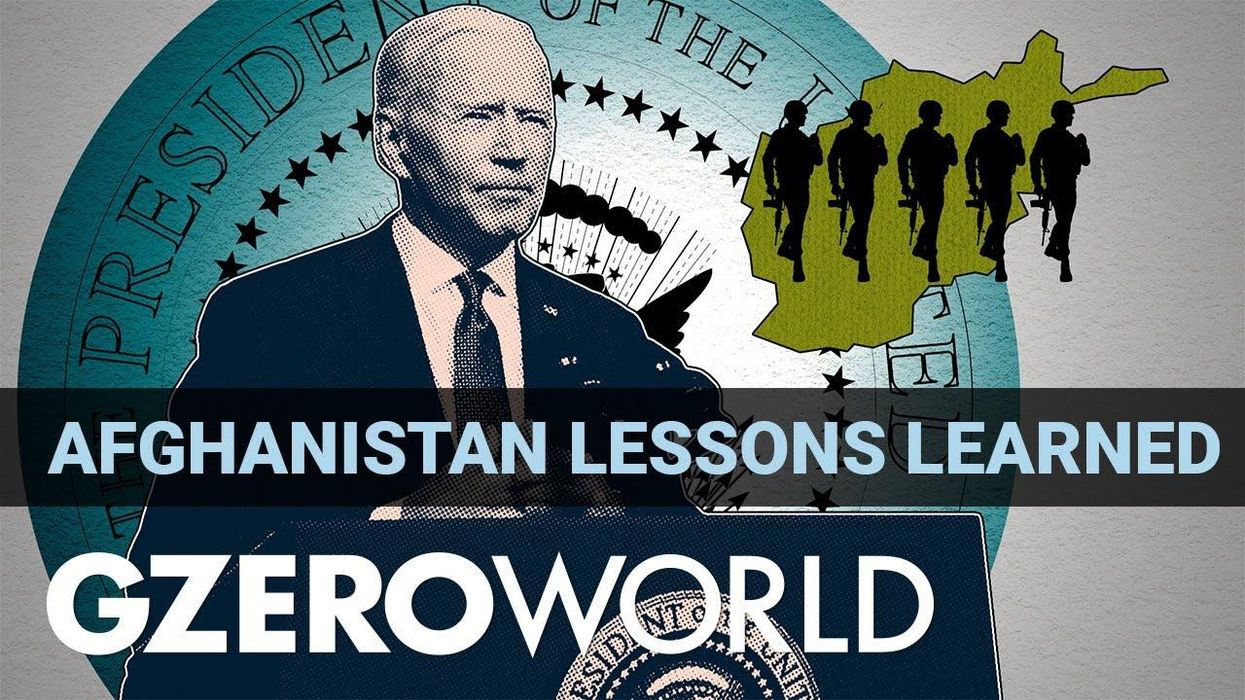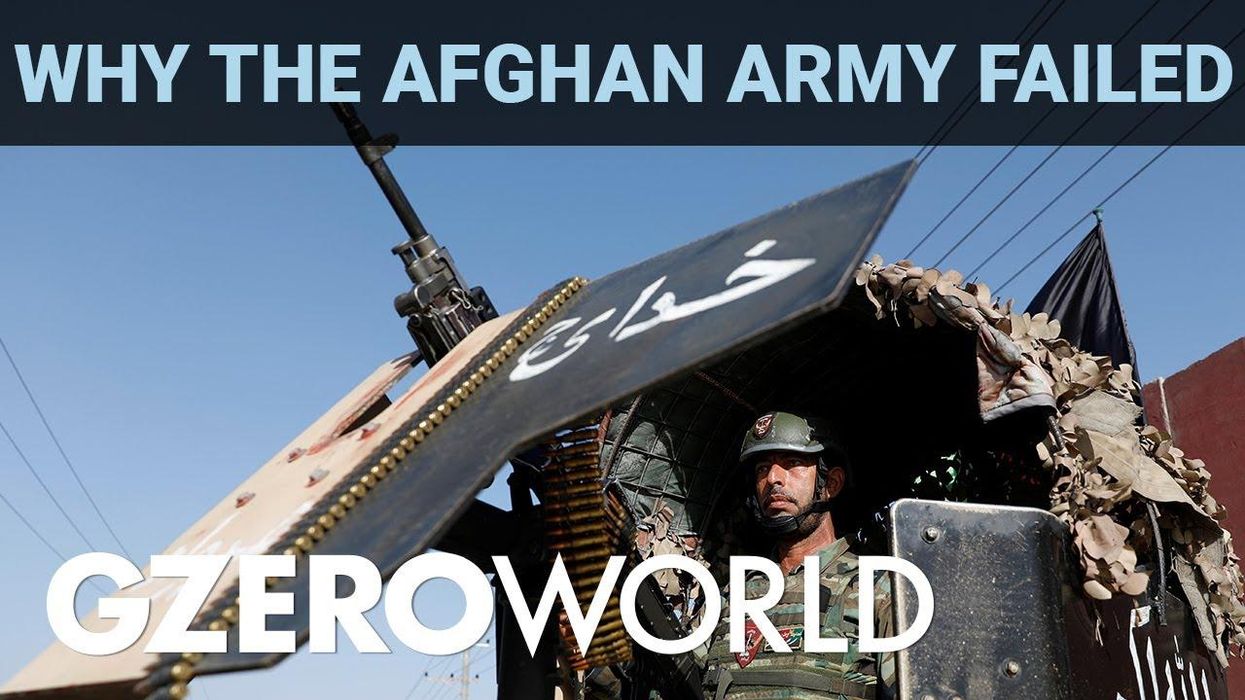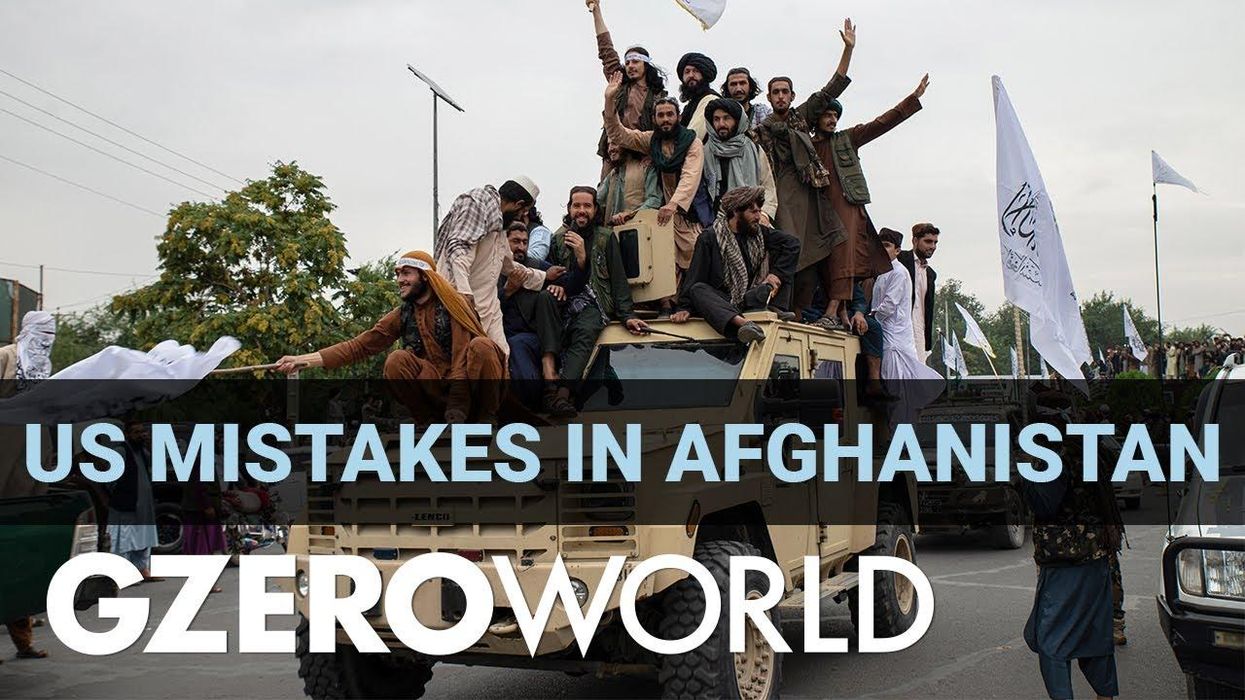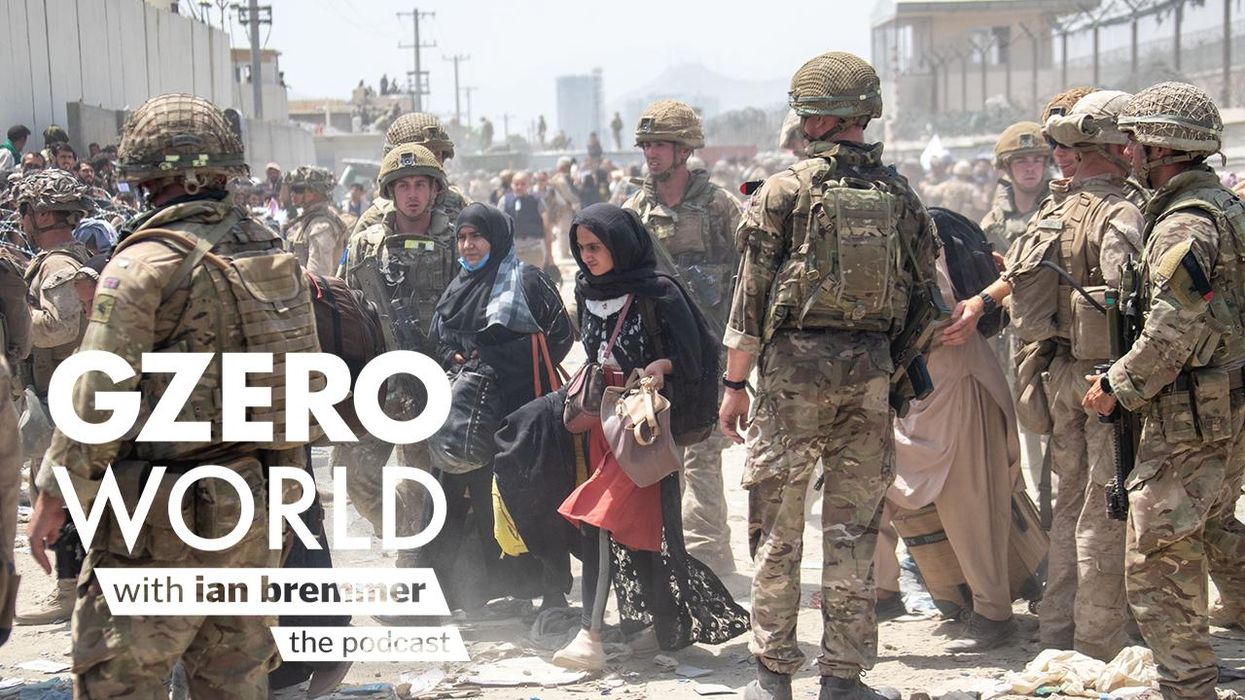GZERO World Clips
A US military vet reckons with America's failures in Afghanistan
On Aug. 15, 2021, the Taliban swept back to power in Afghanistan, after the US departed following two decades of war. Ian Bremmer speaks to former Marine and author Elliot Ackerman on GZERO World.
Sep 11, 2022










